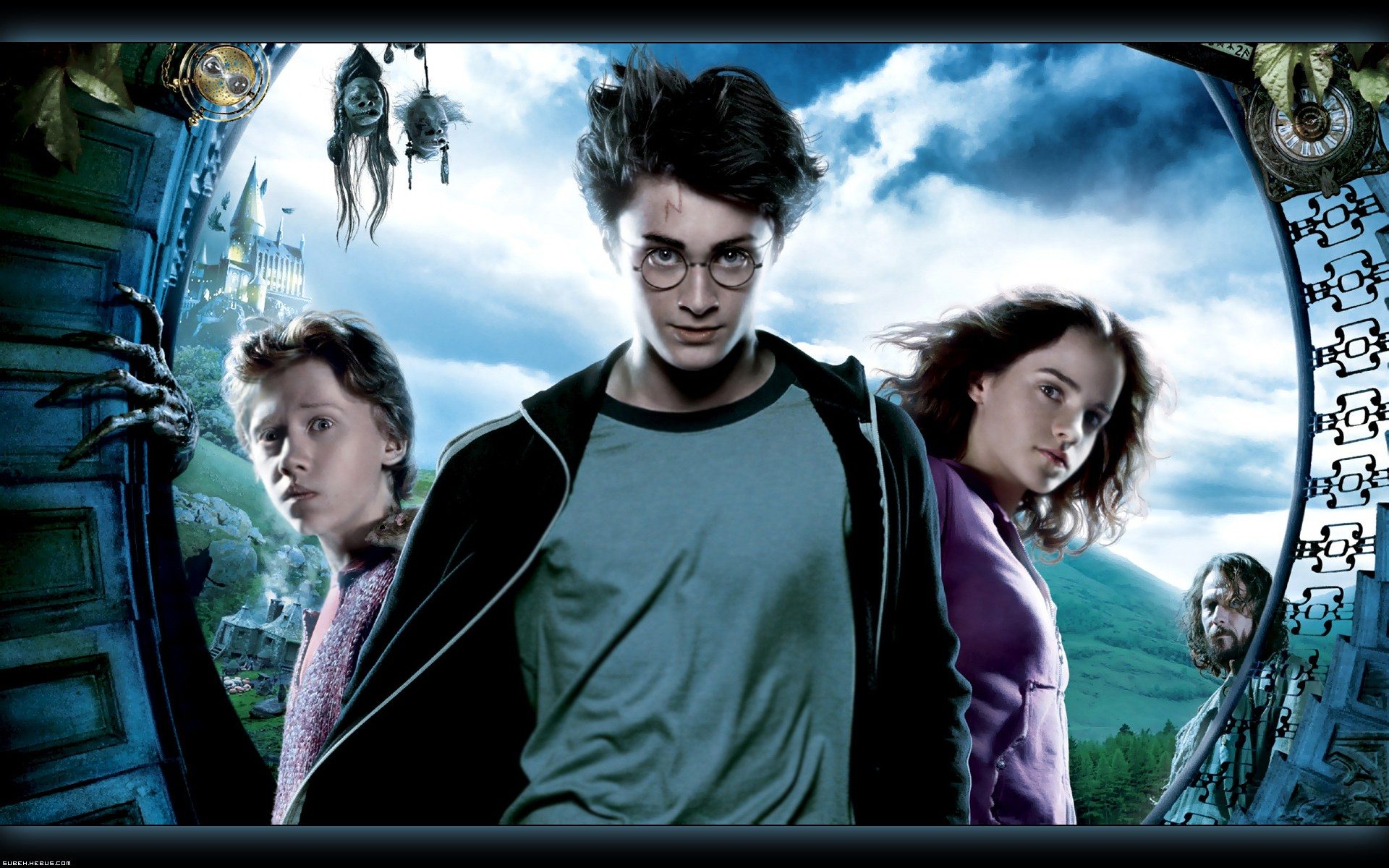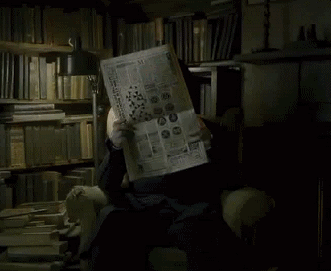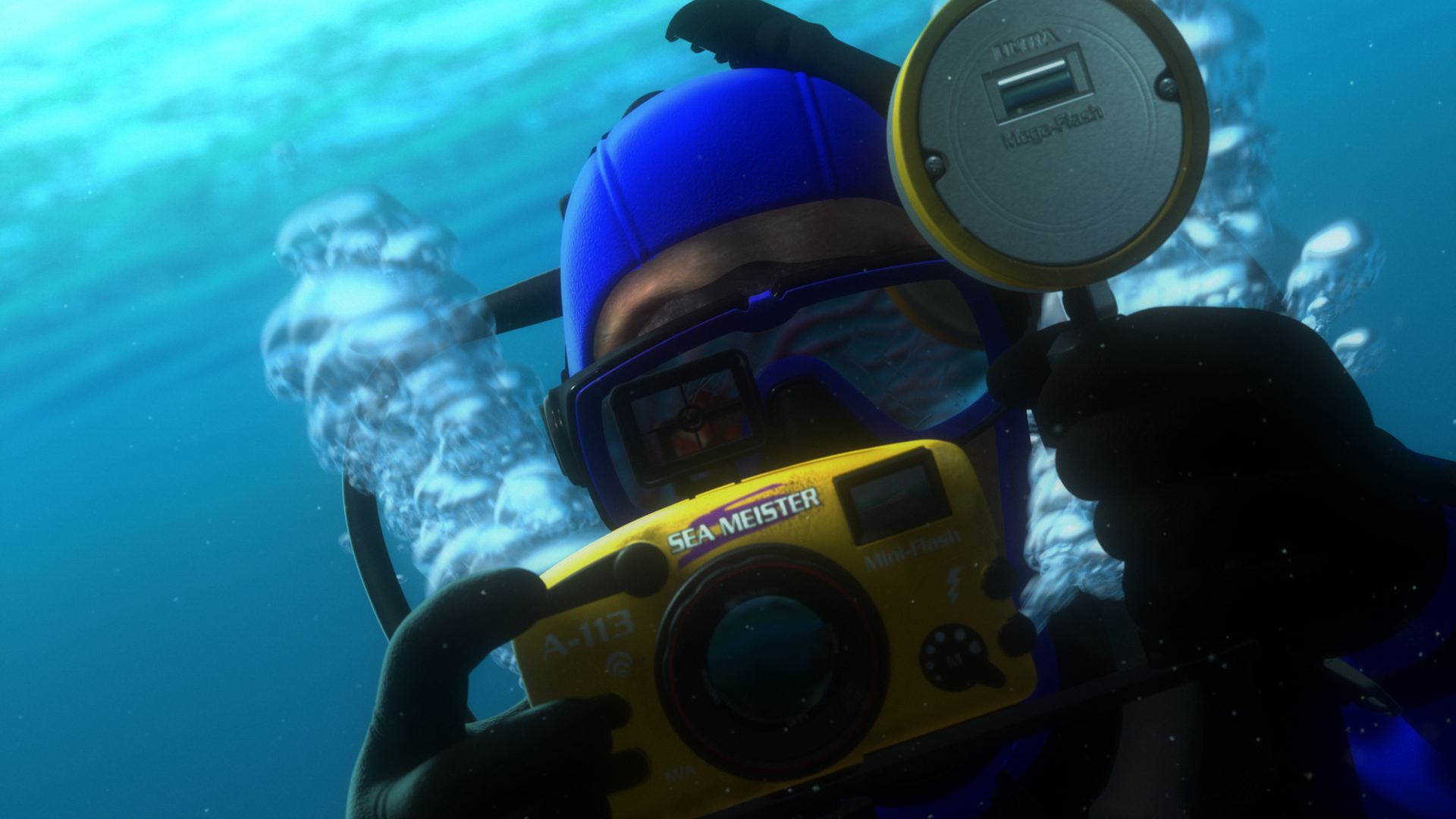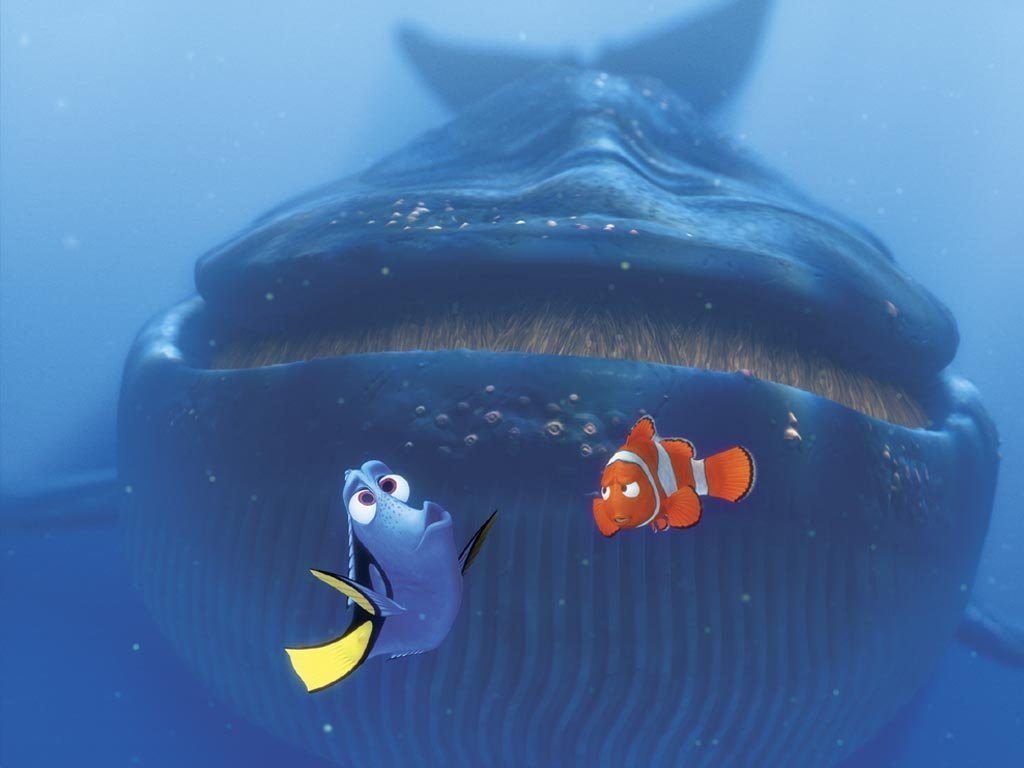
Snark + Sarcasm = what you’re about to read.
I wasn’t allowed to read the Harry Potter books when I was a child. And as a book-obsessed fourth grader who watched his friends read Prisoner of Azkaban during recess instead of playing four square with him, this was one of the more sinister things my parents have ever done to me.
For that reason, I’ve never felt a part of the Harry Potter fandom quite in the same way I did with Pokemon, Pixar movies, and other fixtures of my childhood. Yet when I secretly watched my cousin’s DVD of Harry Potter and the Sorcerer’s Stone at age 13, I fell in love without even trying.
Years later, I’ve seen every movie a handful of times and have a very basic knowledge of the Harry Potter mythology. Just this past week I’ve started reading the first book and am about halfway done, but before I join the legions of book fans who evaluate the literary value of the adaptations, I want to speak out just once more as a movie purist (almost).
Which brings us to this week’s Snarcasm, based on a recommendation from the comments last week. In 2013, Witney Seibold of CraveOnline wrote a “troll” piece about Harry Potter just to “piss people off.” He says this outright in the subhead.
It’s decent armor because anyone who disagrees just has to shrug and say, “Well, he announced himself before trolling, so that’s somehow fine.” But we of the Snarcasm know better.
WARNING: Spoilers for the Harry Potter movies from this point forward.
Headline:
In other news, Lord of the Rings is BASIC! Kendrick Lamar is BAD at Rapping! Expired Milk is DELICIOUS! And other obviously wrong hot takes.
Look, to say with all-caps that Harry Potter simply “sucks” is just anti-intellectual. And it reeks of sensationalism before we’ve even gotten to the text.
Of course, there’s plenty to criticize with Harry Potter, and an article that attempts to start those debates is welcome. But when your headline and first few paragraphs are nothing but monologuing about how brave you are to say something outlandish and obviously wrong, intellectual integrity goes out the window.
Welcome back to CraveOnline’s Trolling, my dearest readers. This is a series of articles devoted to building up the things most people hate, and tearing down the things most people love.
He forgot the last part of that sentence: for oh-so-delicious clicks.
It is designed to spark thought and debate, and perhaps shake up the complacent geek status quo.
Debate? Sure. Thoughtful debate? Not even close.
A natural byproduct of this series will naturally be outrage and argument, so if you have hateful things to say, I wholly encourage you enter them into the comment section below. Be rough. I can take it.
In other words, there’s nothing valuable about this article. It’s trying to be dismissive in order to get a rise out of you. They believe that joking as trolls is somehow different from annoying, troll behavior. It’s not.
You may feel like going on the attack when I make the following statement: Harry Potter sucks.
“So I’m saying everything aloud to make it better.”
Seriously, this is getting boring. We get it, Witney.
He goes on to explain how it’s been some time since the last Harry Potter film released, and the buzz around the franchise has mostly subsided.
I’m not going to let it go so quietly. Based largely on the Harry Potter movies, I am going to dissect and analyze, in a very general way, what Harry Potter did wrong.
His idea of “dissecting and analyzing” boils down to a 4-argument slideshow that mostly just nitpicks (and not very well). Let’s begin.
#1 Harry Potter is a Murderer

What?!?! That sucks! You’re so right, Witney! The main character killed someone and that NEVER happens in fiction! Burn your books, everyone!
Think of Harry Potter’s story arc.
Well, someone has to.
He starts his saga as a put-upon 11-year-old boy who learns he is has magical powers, and was unexpectedly enrolled in a complex and dazzling school for wizards and witches. While at school, he learns that his parents were murdered by a wicked classmate of theirs, and it’s up to Harry (tracing shades of Hamlet) to avenge their deaths.
This is a lazy summation. Harry Potter is about a boy wizard who tries to prevent a powerful sorcerer from being resurrected. It has about as much in common with Hamlet as the trailer for Good Burger.
As the books and the movies progress, they get increasingly dark and turgid, characters die, and everyone mobilized for a great war with the evil classmate in question.
Evil classmate? At this point, Voldemort is way beyond that sort of modifier.
So the whole point of the story is to watch a sweet-hearted 11-year-old boy be whisked into an enchanting world, only to be primed for combat, to feel hate and fear, to watch loved ones die, and to ultimately commit murder at age 17.
There’s so much wrong with this statement, I’m about to revoke Witney’s Internet discussion license.
“The whole point” of Harry Potter is how friendship and love is more powerful than magic. Some people may have their own interpretations, but Rowling is quite clear about how this is framed. The dark elements of the story exist for two main reasons: to make the power of Harry’s love for his friends more believable and compelling, and because it’s a coming-of-age story set within a magical world. The story has to be dark for it to make any sense.
Harry is not “primed for combat.” He’s primed for defense. And ultimately, his “final” act is sacrifice, not brutally murdering Voldemort. Snape even says to Dumbledore that he’s been setting Harry up for “slaughter” because they both know Voldemort has to kill Harry.

Of course, Witney would know this if he paid any real attention to anything that has to do with Harry Potter. Or he’s just conveniently leaving it out because those clicks just look too darn good to pass up.
Aside from that, Harry’s cunning, wit, and luck is what helps him overcome many of the obstacles throughout the movies, and that’s what’s rewarded. His loyalty to Dumbledore in the 5th movie, getting over his angst and loneliness throughout the series, his realization that the government and media aren’t always right, and his acceptance of the burden that is fame and being “the chosen one,” are all key examples.
But no, let’s dumb it down by saying he’s motivated by “hate and fear” because…I’m not even sure where you got this?
This is not fun or magical or dramatic. It’s just dark and sad.
That’s your fault for mischaracterizing the entire story. And even with your own logic, watching characters “die” is actually quite dramatic.
Harry is no hero.
Despite all of the heroic things he does, like sacrificing his life in the final book.
Hogwarts is no school.
Don’t let those classes and teachers fool you.
Harry is a brainwashed soldier who was intentionally psychologically damaged by his bootcamp.

Brainwashed? Harry spends the majority of these movies rebelling against his teachers and the Ministry of Magic because they don’t believe a thing he says. This argument is completely, bizarrely unfounded, as the students as a whole are consistently punished for taking unnecessary risks, misusing their powers, and being violent.
He may be depicted as heroic, but one can easily see the parallel between Harry and Gomer Pyle from Full Metal Jacket.
Yes, “one can easily” see a lot of things, like a writer finishing his point with an obviously irrelevant comparison. I hope Witney starts “dissecting and analyzing” soon.
#2 Voldemort is a bad villain.
Now this is a common criticism actually worth debating. I think the Voldemort character is somewhat mishandled in the movies, but overall, his effectiveness as a villain is more subtle than I think people realize.
If our hero doesn’t quite cut the mustard, maybe the villain of the Harry Potter world can pick up the slack. Sadly, Voldemort doesn’t really have much to add to the proceedings either.
Well then pass the ketchup and turn on that there lawyer show.
Let’s take a look at his arc. He was found to be an immensely powerful young lad who was rescued from the Muggle world by Dumbledore, only to eventually flip out and go on a genocidal spree that is never fully explained (at least not in the movies).
Maybe not “fully” explained, but I would argue sufficiently explained. Voldemort very clearly has it out for the non-magic people of the world, as well as anyone who isn’t of pure blood. His arc makes more sense when you put it up against the other villains of the series who are influenced by him. Voldemort is a more understandable figure when you consider the beliefs of the Malfoy family, Severus Snape, and others.
Unfortunately for Witney, that’s too much dissecting and actual analysis for him to keep up with.
Along the way, Voldemort picked up hundreds of disciples who would obey his every command. Why do people follow this guy? He’s a slimy, pale, clearly evil noseless crackpot.

Yeah, I bet he would only be dangerous if he was…hmm…maybe immortal or something? Oh, and super powerful. But since when do people follow leaders with power?
Again, even the most casual HP fans pick up why Voldemort is so influential. Prejudice in the wizard world (which we mostly see in Hogwarts) is a major theme of the movies. Of course someone who wants to capitalize on that prejudice would pick up followers seemingly out of nowhere, especially if he’s killing anyone who tries to stop him.
He has no charisma, no philosophy to sell, and only seems to rule his minions with threats of violence and death.
Even a fourth grader should be shaking their head at this. Voldemort has power and wants to use it to make the dreams of bigoted wizards come true. Respect through fear is also a very real thing, Witney. If an all-powerful wizard who can’t die threatened you to do something, I’m quite sure you’d go along with it.
We are never really given Voldemort’s motivations.
Wrong.
He’s just a bad egg from the start.
Wrong.
Yawn. Bad eggs are not rich or complex, and certainly cannot lend any texture to what is supposed to be the central conflict in the entire Harry Potter film series.
Not joking, guys. I absolutely do not want to know what kind of “texture” Witney is asking for here.
#3 What the Heck is the Function of Hogwarts?
Ah, we’ve arrived at the most common complaint lobbed at Harry Potter, mostly because answering it requires listening comprehension.
Because one of the first things Harry asks in the first movie is what people do after they go to Hogwarts, and guess what? This is answered.
Harry is a wizard, and goes to a wizarding school, which lies hidden in the remote hills of England. He goes there to hone his wizarding skills. He learns to mix magical potions, cast spells, and ride around on broomsticks. This is all very neat and fun and adventurous. But I can’t help but wonder: What exactly does a diploma from Hogwarts offer a young wizard?
If only the movies explained this all the time.
Even if they didn’t, these “fun adventures” are usually very dangerous and frightening, which motivates Harry and his friends to become more powerful. So of course, a diploma is more of a symbol of how these wizards can contend with the dangers of an even more dangerous world outside of Hogwarts.

The only other adult wizards in this universe are either shop owners or teachers. Some work for an ill-defined Ministry of Magic, whose function isn’t too clear either. Are those the only choices of employment once you graduate?
You just said that all of the adult wizards in Harry Potter either run shops or teach. Now you’re saying they work for a mysterious wizard organization that you confess you know nothing about, despite how straightforward the ministry is in these movies.
Seems legit.
That said, we do meet many wizards with specific jobs and roles throughout Harry Potter, and even more are alluded to. Some use magic to keep the wizard world secret, others track down dangerous beasts all over the world, aurors act as magical police, Ron’s dad works with cursed muggle artifacts, and so on.
And this hardly matters, anyway. Rowling decided to keep the focus of Harry Potter on Hogwarts, rather than provide mounds of exposition in order to explain what will happen during a part of Harry’s life that the story doesn’t even explore. We still get clues and inklings of what exists beyond the school, but not so much that it would distract from the main story.
Why is it important to be a powerful wizard if you’re just going to work either as a retail wonk or a government clerk?
Well, Hogwarts doesn’t necessarily train its wizards to be “powerful,” just simply well-versed in magical abilities. Powerful wizards get the jobs I mentioned above, such as how one of the older Weasley brothers studies dragons.
The Hufflepuffs probably do a lot of the government work, I’d imagine.
If that’s all Harry has to look forward to, doesn’t his arc seem churlish?
He goes on to become an auror, you walnut.

Some of the wizards have no working knowledge of the “normal” world. Hogwarts, then, is painfully backward in their curriculum. Sure, there’s plenty of magic to learn, meaning classes in the sciences may seem a bit unnecessary, but where is the literature? The music? The sex ed? The three R’s? Do any of these kids ever do a single math problem?
For beings who use magic to do everything, “muggle subjects” are quite unnecessary. This is somewhat alluded to by how amazed the wizards are by muggle things Harry takes for granted. Also, Hogwarts students don’t take any of these magic classes until they’re 11, so the rudiments of math, logic, and reading comprehension are probably focused on during their early education.
I feel bad for English kids who never get to read Shakespeare or Dickens. You learn to move things with your mind, but you never get to read David Copperfield. That’s a bad school.
Right, let’s feel bad for kids who grow up with magical abilities. They’ll never know the joys of reading Gone Girl and watching Teen Titans Go. You know, unless they do all of that in the summer.
Besides, the wizard world has its own literature and even music more relevant to their culture. Ron mentions how The Tales of Beedle the Bard is a staple of his childhood that Harry and Hermoine compare to Cinderella. As for the rest of these weirdly specific subjects you mention, there’s certainly room for us to imagine that these children aren’t painfully ignorant of them simply because the story doesn’t waste time addressing it.
After all, there’s a reason Rowling doesn’t spend much time showing us what’s actually going on in these classes unless the teacher is doing something absurd.
#4 About Half the Movies are Just Bad
No, about half the movies are just OK. None of them are particularly bad, save for Order of the Phoenix, which is a bit mediocre.

That said, how does this mean Harry Potter sucks? This statement suggests Harry Potter only “half” sucks.
You didn’t even go to Hogwarts and you can’t do math…
The films based on the Harry Potter novels begin strong, and then take a dive somewhere around film #3.
A bold suggestion considering the third film is considered by many to be the best. But I’ll wait for you to explain yourself (for some reason).
The fourth is pretty good, actually, but the fifth through the eighth are, well, convoluted and badly filmed.
I really just want to end this Snarcasm right now.
Look, the Harry Potter films are far from perfect. And I have no qualms with anyone who simply dislikes them. But that’s just opinion, not a real analysis.
Here’s what I think, so take that for what it is: the films are consistently solid, with some highs and some lows. You can criticize all of them for many legitimate reasons, such as pointless, convoluted side plots and deus ex machina. But you also have to credit the films for bringing Rowling’s incredibly detailed and rigorous mythology to life. The cast is fantastic and ages well with the movie. The sets and effects provide some remarkable eye candy, especially with the wizard duels. The soundtrack is iconic, which the movie gets full credit for. And many of the performances are well above average.
The movies are perhaps the worst kind of literary adaptation, i.e.: they rely less on telling the story in a fresh way, and more on merely depicting what has already been fleshed out on the page.
This is idiotic hyperbole. The worst kind of literary adaptation is when you subvert the message of the books and make the source material seem worse.
We can agree that the movies mostly play it safe and just try to get the story out, not addressing what a truly good film this story could be. But that’s a fairly forgivable flaw for a studio that was tasked with bringing such a monumentally important book series to the big screen.
This means that the movies are not adaptations, but mere dramatizations of key plot elements from the books.
I’m seriously just repeating myself at this point: Witney, you’re wrong. The majority of everything you say either makes no sense or just comes off as intentionally idiotic.
The pace is too quick, the tone too dark, and the story too complex for most of the movies to work as actual dramas. Important stuff and unimportant stuff whizzes by without any sense of majesty or portent.
Finally, some fair criticisms that I actually, sort of agree with. But these problems are why the movies are not masterpieces. They don’t discount all of the positive aspects of this franchise that make it pretty good, if not great.

Is Harry Potter still enchanting and wonderful? For a short while at the beginning, yes. For the first two films, I had no complaints, and found them to be dramatic and fun and dazzling.
Really? Because I would argue Chamber of Secrets is one of the weaker films of the series, and it contains a lot of the complaints you were referencing earlier pertaining to Voldemort’s backstory. But hey, these are just your own words we’re talking about.
The world of Hogwarts and wizards is still a unique and enjoyable place to ponder, built on a complex and intriguing mythology, and seems like the type of place you’d want to visit or even attend for seven years. The series contains many flashes of adventure and fantasy that captured the world like no other fantasy novel. Eventually, though, the Harry Potter series climbed up its own ass and set up camp.
Witney, you’re wrong. The majority of everything you say either makes no sense or just comes off as intentionally idiotic.
This is one of the laziest “hot takes” I’ve read in a while. It shows only a third-grade understanding of what’s being discussed, the text blatantly aggressive, and it contributes nothing to any real discussion about these films and what they mean.
In other words, it’s vintage 2013 clickbait.
Hey! If you’ve come across a silly article that deserves the Snarcasm treatment, send it my way via Twitter or the comments below!
I’m Jon and thanks for reading this. You can subscribe to my posts by clicking “Follow” in the right sidebar. Or just say hey on Twitter! @JonNegroni
Like this:
Like Loading...













